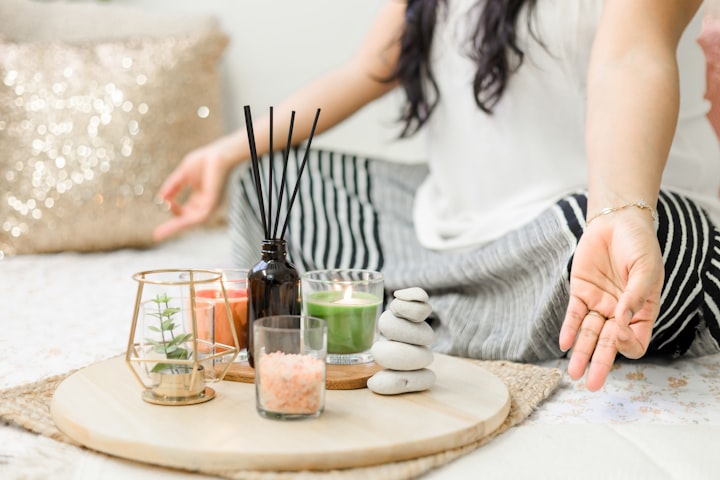The Power of Meditation Exercises:
Cultivating Inner Balance and Mental Well-being
In the fast-paced world we inhabit, where stress, anxiety, and distractions abound, finding moments of calm and inner peace has become more crucial than ever. Meditation exercises offer a powerful tool to navigate the complexities of modern life while enhancing overall well-being. By cultivating mindfulness and redirecting our focus inward, meditation exercises enable us to achieve a state of deep relaxation, mental clarity, and emotional stability. This article explores the benefits of meditation exercises, various techniques to incorporate into your practice, and practical tips to help you embark on a transformative journey of self-discovery and inner balance.
Understanding Meditation
Meditation, rooted in ancient traditions and practiced worldwide, is the deliberate act of training one's mind to attain a state of heightened awareness and focus. It involves directing attention to a specific object, such as the breath, a mantra, or sensations in the body, while observing thoughts and emotions without judgment. Through regular practice, meditation enhances self-awareness, compassion, and introspection, leading to an improved understanding of oneself and the world.
Benefits of Meditation Exercises
a. Stress Reduction: Meditation exercises are renowned for their ability to reduce stress and anxiety by activating the body's relaxation response. By calming the mind and regulating stress hormones, meditation fosters a sense of tranquility and inner peace.
b. Improved Mental Clarity: Regular meditation practice enhances cognitive abilities, including focus, concentration, and memory. It allows the mind to declutter, promoting clearer thinking and problem-solving skills.
c. Emotional Well-being: Meditation exercises encourage emotional resilience by cultivating mindfulness and non-reactivity. They help individuals become more attuned to their emotions, fostering self-acceptance and providing a healthy outlet for emotional release.
d. Physical Health Benefits: Research suggests that meditation exercises have positive effects on physical health. They can lower blood pressure, strengthen the immune system, and improve sleep quality, promoting overall well-being.
e. Enhanced Creativity and Productivity: By quieting the mind and fostering a sense of calm, meditation exercises can unleash one's creative potential and boost productivity. They provide a mental reset, enabling individuals to approach tasks with renewed vigor and inspiration.
Popular Meditation Techniques
a. Mindfulness Meditation: This technique involves paying attention to the present moment without judgment. It typically involves focusing on the breath, bodily sensations, or external stimuli, allowing thoughts and feelings to arise and pass without attachment.
b. Loving-Kindness Meditation: This practice involves generating feelings of compassion and love towards oneself and others. It cultivates empathy, kindness, and a sense of interconnectedness with all beings.
c. Transcendental Meditation: Originating from ancient Vedic traditions, this technique involves silently repeating a mantra to achieve a state of deep relaxation and expanded awareness. It is often practiced for 15-20 minutes twice daily.
d. Guided Visualization: This method utilizes guided imagery to evoke mental images and sensations, creating a relaxing and immersive experience. It helps individuals visualize their goals and aspirations, promoting motivation and clarity.
e. Movement-Based Meditation: Practices such as yoga, tai chi, and qigong combine physical movement with focused attention, fostering mind-body integration and a meditative state.
Conclusion
In a world filled with constant stimulation and demands, meditation exercises offer a refuge for self-discovery, inner balance, and mental well-being. Whether you are seeking stress reduction, improved focus, emotional resilience, or enhanced creativity, incorporating meditation into your daily routine can be transformative. By dedicating even a few minutes each day to cultivating mindfulness and self-awareness, you can embark on a profound journey of self-exploration and inner growth.
To begin your meditation practice, it's essential to create a conducive environment that promotes tranquility and minimizes distractions. Find a quiet space where you can sit comfortably, either on a cushion or a chair, ensuring proper posture to support relaxed yet alert attention. Set aside dedicated time for your practice, starting with shorter sessions and gradually increasing the duration as you become more comfortable.
As you settle into your meditation, focus on your chosen point of attention, such as the breath, a mantra, or a visual object. Allow your thoughts to arise naturally without judgment, gently returning your focus to the chosen anchor whenever you find your mind wandering. Remember, meditation is not about stopping thoughts altogether but rather observing them with non-attachment and cultivating a sense of presence.
Consistency is key in reaping the benefits of meditation. Aim to practice daily, even if it's just for a few minutes. Over time, you'll notice subtle shifts in your mental and emotional well-being. However, it's important to approach your practice with patience and without expectations. Each meditation session is unique, and experiences may vary from day to day.
In addition to regular practice, you can integrate mindfulness into your daily life by bringing present-moment awareness to routine activities. Whether it's savoring the taste of your food, appreciating nature during a walk, or being fully present in conversations, mindfulness can enrich your experiences and cultivate a deeper sense of connection with yourself and others.
If you're new to meditation, consider seeking guidance from experienced practitioners or attending meditation classes or workshops. Many resources, including smartphone apps and online platforms, offer guided meditations tailored to different goals and preferences.
In conclusion, meditation exercises provide a powerful pathway to cultivate inner balance and mental well-being amidst the hustle and bustle of modern life. By incorporating meditation into your daily routine, you can experience the myriad benefits it offers, including stress reduction, improved mental clarity, emotional resilience, physical health benefits, and enhanced creativity and productivity. Through consistent practice and a gentle, non-judgmental approach, meditation can become a transformative tool for self-discovery, bringing about a greater sense of peace, harmony, and fulfillment in your life. So, take a deep breath, find your inner sanctuary, and let the journey of meditation begin.
About the Creator
Signor Wilson
I'm Signor Wilson, a passionate content creator, YouTuber, blogger, and poet. I love exploring different avenues of creative expression and sharing my insights with the world.






Comments
There are no comments for this story
Be the first to respond and start the conversation.